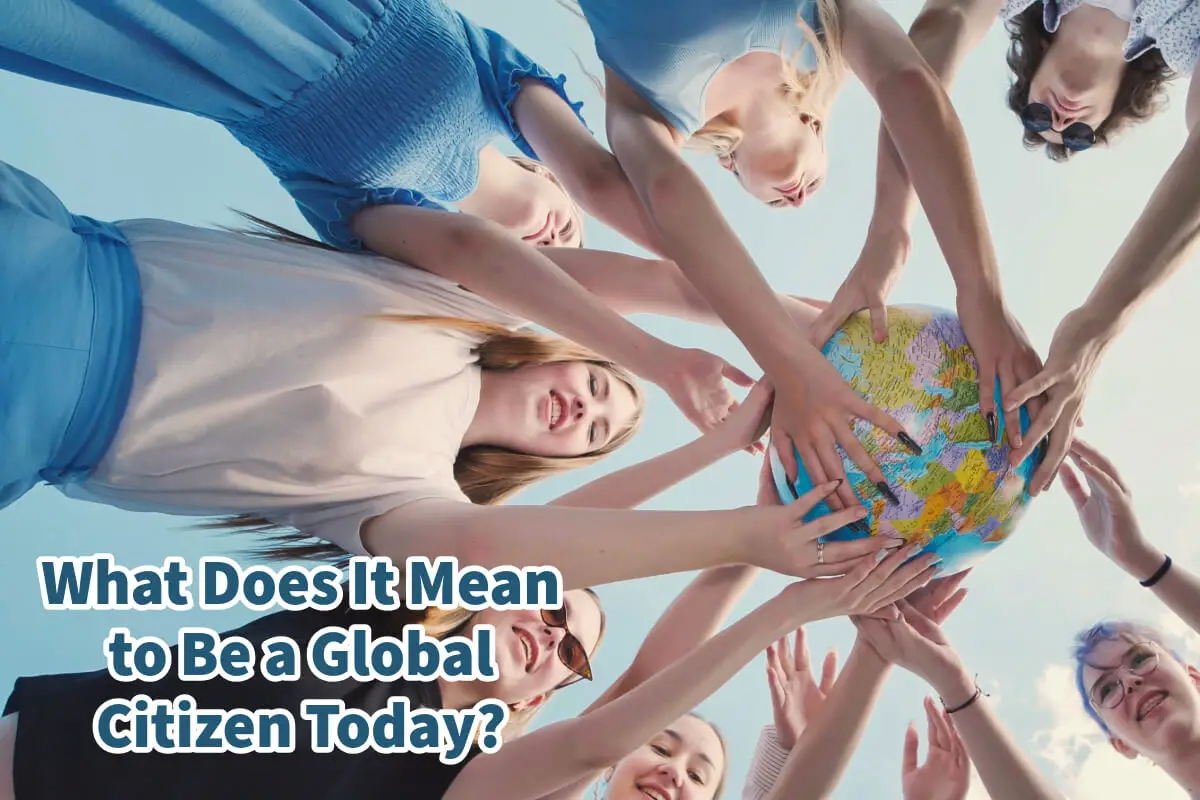In a world where borders are more digital than physical, the idea of “home” can be as broad as the planet itself. Being a global citizen doesn’t mean you give up where you’re from. It means expanding your sense of connection and responsibility to the world.
At A Bus On A Dusty Road, our philosophy is about exploring places, ideas, and cultures. Understanding and participating in the global community is essential, especially today. But what does being a global citizen mean today? Let’s break it down.
Table of Contents
- What Is a Global Citizen?
- Why Being a Global Citizen Matters Today
- 15 Reasons Why Being a Global Citizen Matters
- 1. You Understand We’re All Interconnected
- 2. You Respect Cultures—Without Romanticizing or Stereotyping
- 3. You Stay Informed About Global Issues
- 4. You Support Fair Trade and Ethical Consumption
- 5. You Practice Environmental Responsibility
- 6. You Understand Language Is Power
- 7. You Embrace Differences Without Trying to Erase Them
- 8. You Travel with Curiosity and Humility
- 9. You Support Global Education
- 10. You Vote (and Influence Policy) with the World in Mind
- 11. You Advocate for Human Rights
- 12. You Share Knowledge, Not Just Opinions
- 13. You Fight Against Nationalism and Extremism
- 14. You Invest in Solutions, Not Just Sympathy
- 15. You Understand Privilege—and Use It Wisely
- Real Life Example: Living Abroad, Thinking Global
- How to Start Thinking Like a Global Citizen
- 15 Compelling FAQs About Global Citizenship
- Final Thought: The World Is Waiting
- Related Questions
What Is a Global Citizen?
A global citizen sees beyond national identity and embraces our shared responsibilities as humans. It’s not about where you were born or live. It’s about how you think and act and what values guide you.
Global citizens care about human rights, sustainability, equity, education, and access. They stay informed, travel when they can, ask questions, connect dots between cultures, listen, and show up. And they don’t pretend the world’s problems belong to “someone else.”
Why Being a Global Citizen Matters Today
We’re more connected than ever—through technology, trade, climate, culture, and crises. But connection doesn’t guarantee compassion or action. That’s where global citizenship comes in. It’s a mindset that turns awareness into responsibility.
Here are 15 key reasons being a global citizen matters now more than ever—and what it looks like in action.
15 Reasons Why Being a Global Citizen Matters
Why is it important for people to become global citizens? There are many compelling reasons, and here are some of the top 15 we believe matter most.
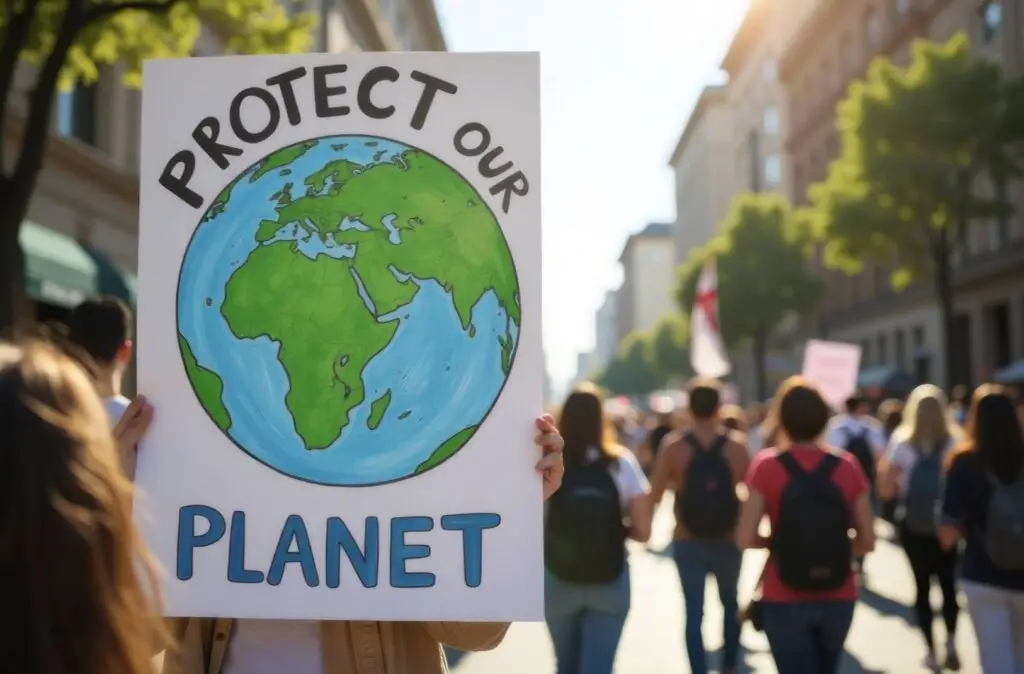
1. You Understand We’re All Interconnected
Climate change, pandemics, economic shifts, and tech trends don’t stop at borders. Global citizens see how one region’s decisions ripple across the world.
2. You Respect Cultures—Without Romanticizing or Stereotyping
You learn from others, not to “collect” their traditions but to honor them: cultural appreciation, not appropriation.
3. You Stay Informed About Global Issues
You read the news from beyond your country. You pay attention to global conflicts, elections, humanitarian efforts, and social justice movements.
4. You Support Fair Trade and Ethical Consumption
You make buying choices that don’t exploit workers or the environment. You care where your coffee, clothes, and tech come from.
5. You Practice Environmental Responsibility
Recycling, reducing plastic, and minimizing your carbon footprint aren’t just “local” concerns—they’re global commitments.
6. You Understand Language Is Power
You may speak more than one language, or you may try to learn a few words when you travel. It’s not just about convenience; it’s about respect.

7. You Embrace Differences Without Trying to Erase Them
You don’t expect the world to fit into your worldview. You adjust your lens and accept nuance.
8. You Travel with Curiosity and Humility
Whether exploring a new city or volunteering abroad, you don’t treat other places as backdrops for selfies. You listen more than you speak.
9. You Support Global Education
You believe everyone should have access to learning, whether a girl in Afghanistan or a rural student in Guatemala.
10. You Vote (and Influence Policy) with the World in Mind
Your political decisions at home affect people far away. When you head to the polls, you consider foreign policy, climate agreements, and refugee rights.
11. You Advocate for Human Rights
You stand up for freedom of speech, gender equality, LGBTQ+ rights, racial justice, and refugee protections, regardless of where the issue originates.
12. You Share Knowledge, Not Just Opinions
You contribute to conversations, projects, and communities with actual insight. You offer help, mentorship, and collaboration across borders.
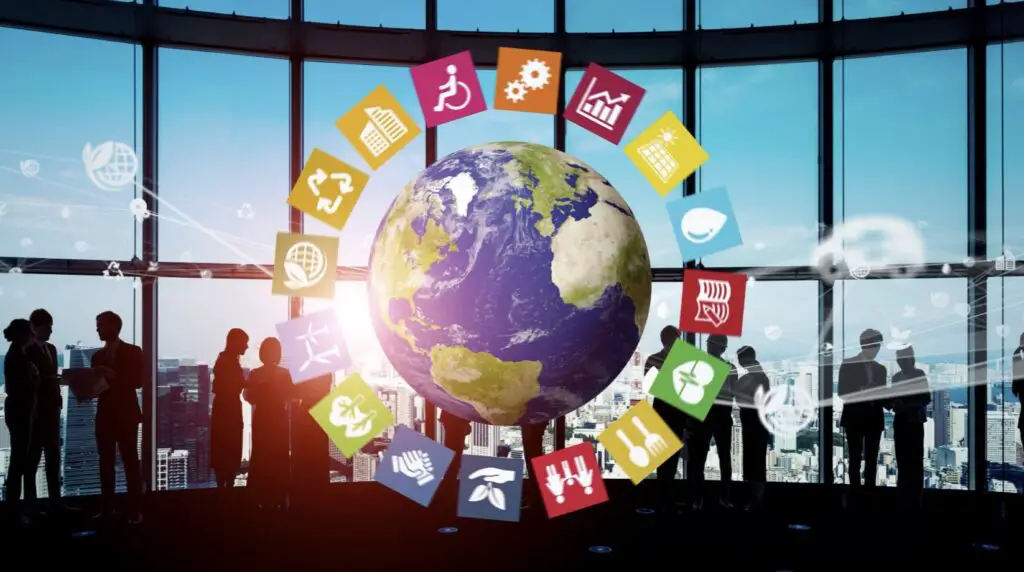
13. You Fight Against Nationalism and Extremism
You believe patriotism is fine, but not at the expense of truth, inclusion, or international cooperation.
14. You Invest in Solutions, Not Just Sympathy
You don’t just watch disasters unfold. You donate. You organize. You build. You care about long-term impact, not just quick fixes.
15. You Understand Privilege—and Use It Wisely
If you have access to travel, tech, education, or wealth, you recognize it and use it to amplify others, not just elevate yourself.
Real Life Example: Living Abroad, Thinking Global
At Abusonadustyroad.com, we’ve spent years living abroad—in Asia, Europe, and South America. What started as travel turned into transformation. We learned how to navigate other cultures not as tourists, but as temporary locals.
Living in Vietnam, for example, teaches patience. Watching a community prioritize collective success over individual gain shifts your values. These experiences shape a global mindset—not just visiting places but letting them change you.
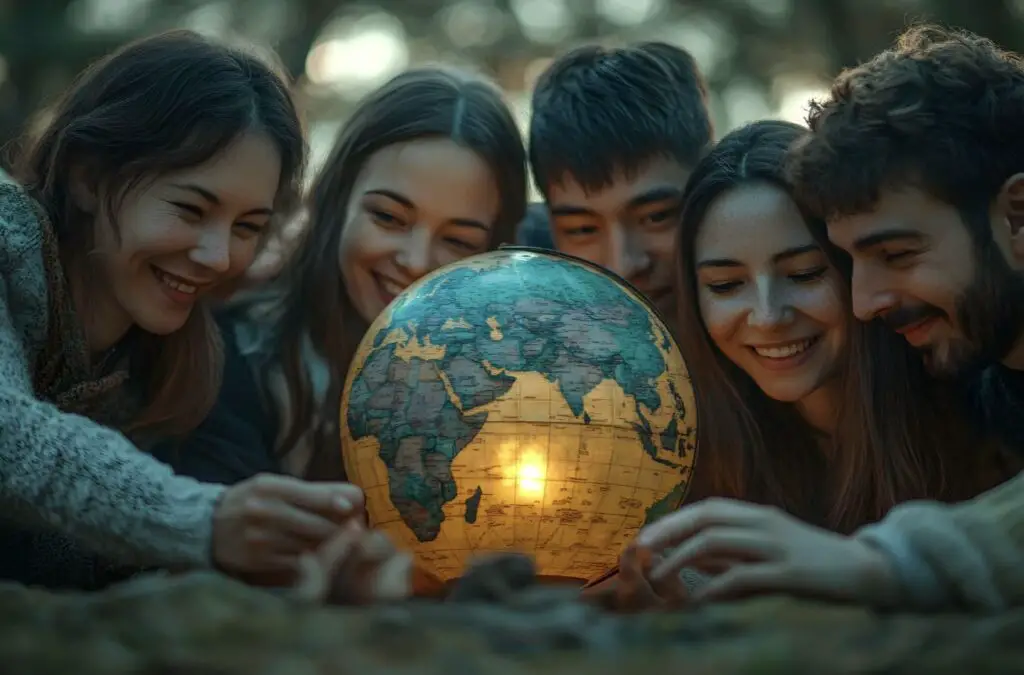
How to Start Thinking Like a Global Citizen
You don’t have to travel far to think globally. Here’s how to begin:
- Read international news weekly.
- Support global causes and verified NGOs.
- Listen to podcasts from outside your culture.
- Try food from regions you don’t know much about.
- Follow educators, artists, and leaders from other countries.
- Teach your kids about other parts of the world.
- Learn one phrase in a new language every month.
- Understand immigration—not just as policy, but as people’s lives.
Global Citizenship Is Not a Trend—It’s a Lifelong Practice
This isn’t about chasing clout or checking off countries on a map. Global citizenship is deep work. It means asking hard questions. It means confronting bias. It means listening when it’s uncomfortable. But most of all, it means refusing to ignore what’s happening to your neighbors—even when they live oceans away.
We believe a dusty road can lead anywhere. And on that road, we all become part of something bigger than ourselves.
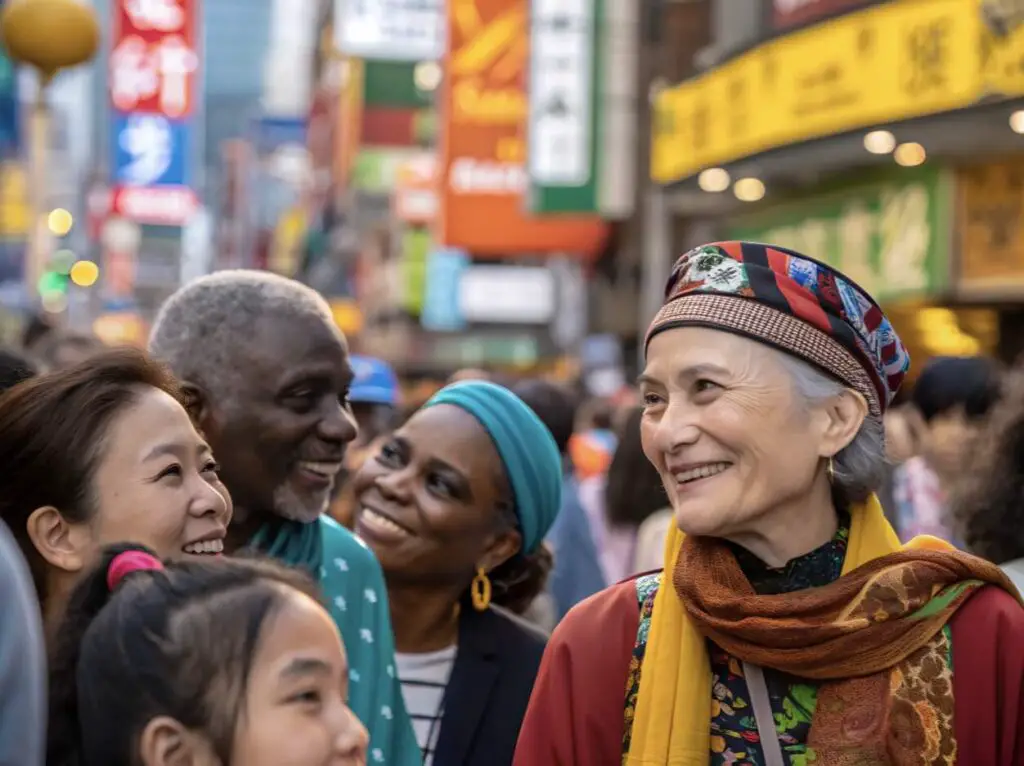
15 Compelling FAQs About Global Citizenship
What is the definition of a global citizen?
A global citizen identifies as part of the international community and acts on that awareness through compassion, activism, education, and responsibility.
Is being a global citizen the same as being a world traveler?
Not necessarily. Travel can help shape global thinking, but you don’t need a passport to practice global citizenship.
Can anyone be a global citizen?
Yes. It’s a mindset, not a legal status or exclusive club.
Is global citizenship tied to a specific country or organization?
No. Some organizations promote it (like Global Citizen or the UN), but it’s a philosophy more than a membership.
Why is global citizenship important in education?
It helps students develop empathy, critical thinking, cultural awareness, and a broader understanding of world issues.
How can I teach my kids to be global citizens?
Expose them to different cultures, languages, foods, and global stories: model respect, curiosity, and care.
Does global citizenship conflict with national identity?
No. You can love your country and still care deeply about others. It’s not either/or.
How can I get involved globally without traveling?
Volunteer online, donate to global causes, attend virtual events, or join global forums and communities.
Is global citizenship a political concept?
It can influence politics, but it’s broader. It’s rooted in ethics, responsibility, and connection, not party lines.
Can global citizens make a real difference?
Yes. Collective action shapes policy, funding, innovation, and social change, no matter where it comes from.
What are some challenges of being a global citizen?
Facing global injustice can be overwhelming. Also, balancing action with humility takes practice.
How does technology impact global citizenship?
It accelerates connection, learning, and mobilization. However, it also requires digital literacy and critical thinking.
What’s the opposite of a global citizen?
Someone who is isolationist, nationalistic to a fault, or indifferent to global issues.
Can a business be a global citizen?
Yes—through fair labor practices, sustainability efforts, inclusive hiring, and global impact programs.
What’s one thing I can do today to become a Global Citizen?
Pick one issue—climate, education, human rights—and learn how it affects people in at least three other countries. Then share what you learn.
Final Thought: The World Is Waiting
Being a global citizen isn’t about being perfect. It’s about being present. The world doesn’t need more bystanders. It needs more bridge-builders, listeners, connectors, and doers.
Wherever you are, you’re already on the road. The question is: Where are you willing to go from here?
Listen To Our Podcast About
How Has the Idea of Being a Global Citizen Changed Today?
Below or By clicking here.

At A Bus On A Dusty Road, we talk about travel, life, and ex-pat living. We are all about “Living Life As A Global Citizen.” We explore social, cultural, and economic issues and travel.
We would love to have you be part of our community. Sign up for our newsletter to keep up-to-date by clicking here. If you have any questions,pleasen contact me, Anita, by clicking here.
Listen to our Podcast called Dusty Roads. You can find it on all major podcast platforms. Try out listening to one of our podcasts by clicking here.
Subscribe to our A Bus On A Dusty Road YouTube Channel with great videos and information by clicking here.
Related Questions
The Best Rope For Bow And Stern Tie-Downs For Your Boat
When embarking on nautical adventures, one crucial aspect that demands your attention is the selection of the suitable rope to keep your vessel securely tethered to the dock or mooring ball. Given the pivotal role of this gear, it’s essential to be informed about the types of rope available and the significance of choosing the correct one.
To learn more, you can read our blog on The Best Rope For Bow And Stern Tie-Downs For Your Boat by clicking here.
What Is The Meaning Of Port, Starboard, Bow, And Stern?
As the bow slices through the waves towards the horizon, understanding these terms becomes as vital as the wind propels your sail vessel forward. With port and starboard distinguishing the left from the right sides of the boat when facing forward and the stern marking the rear, a sailor’s lexicon is both a map and a compass in the vast blue sea. Whether you’re steering into the sunset on Lake Michigan or charting a course through stormy seas, knowing these terms is your first step in speaking the ancient language of sailors.
You can discover more by reading our blog, What Is The Meaning Of Port, Starboard, Bow, And Stern? by clicking here.
Bow, Stern, Fore & Aft: Points Of Seafaring Knowledge
Essential nautical terms such as ‘Bow,’ ‘Stern,’ ‘Fore,’ and ‘Aft’ become not just words but part of the sailor’s essential toolkit. Let’s set sail into the heart of these terms and discover why a solid grasp of nautical knowledge is not just helpful but crucial for anyone who takes to the seas or the lakes with earnest intent.
By clicking here, you can discover Bow, Stern, Fore & Aft: Points Of Seafaring Knowledge.

